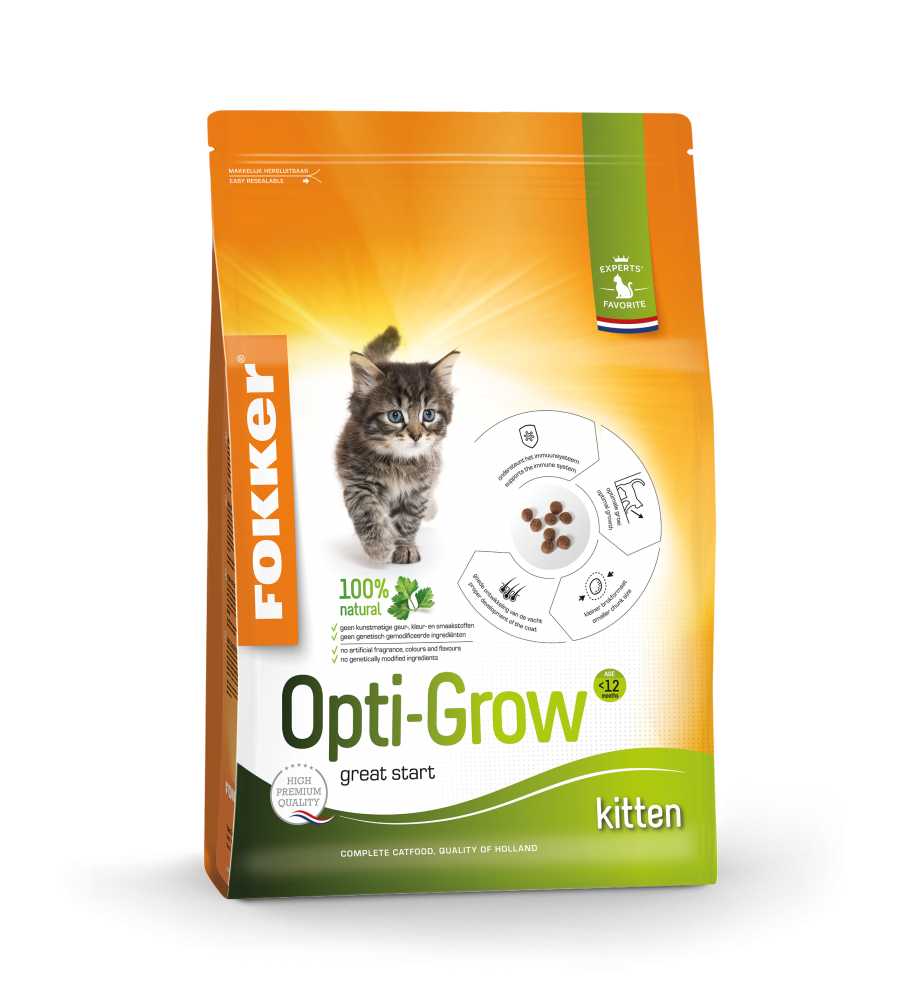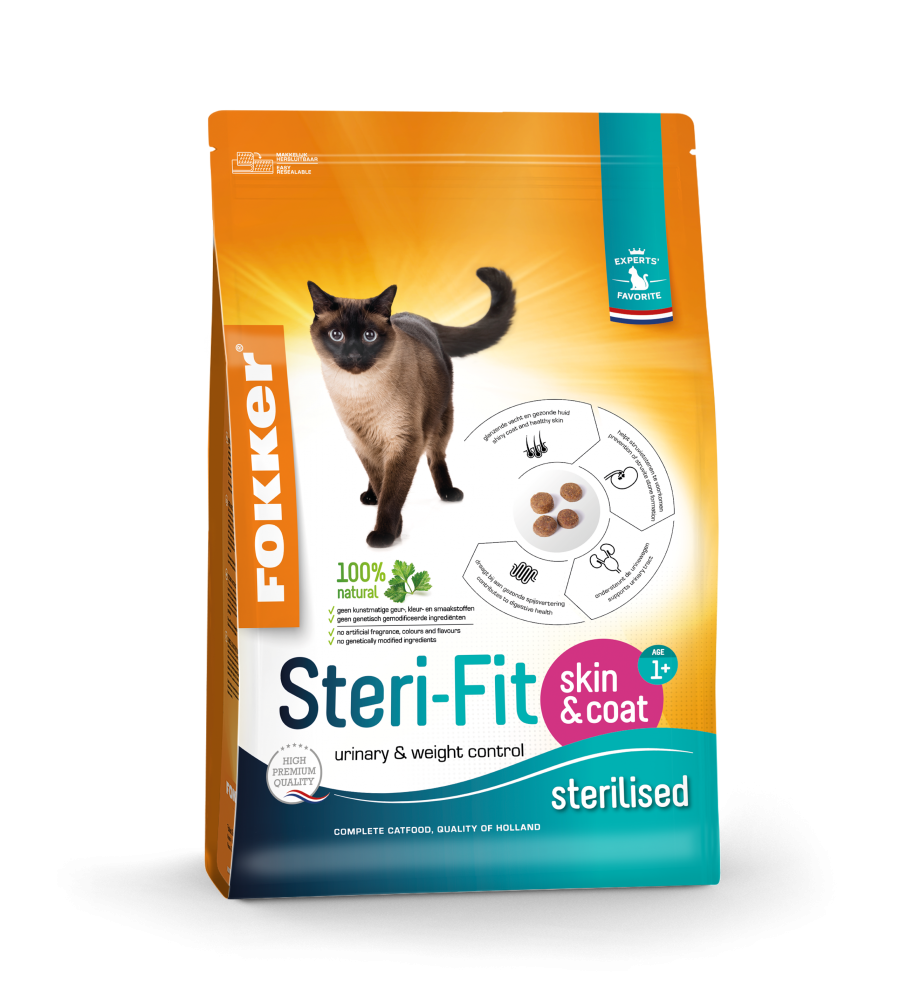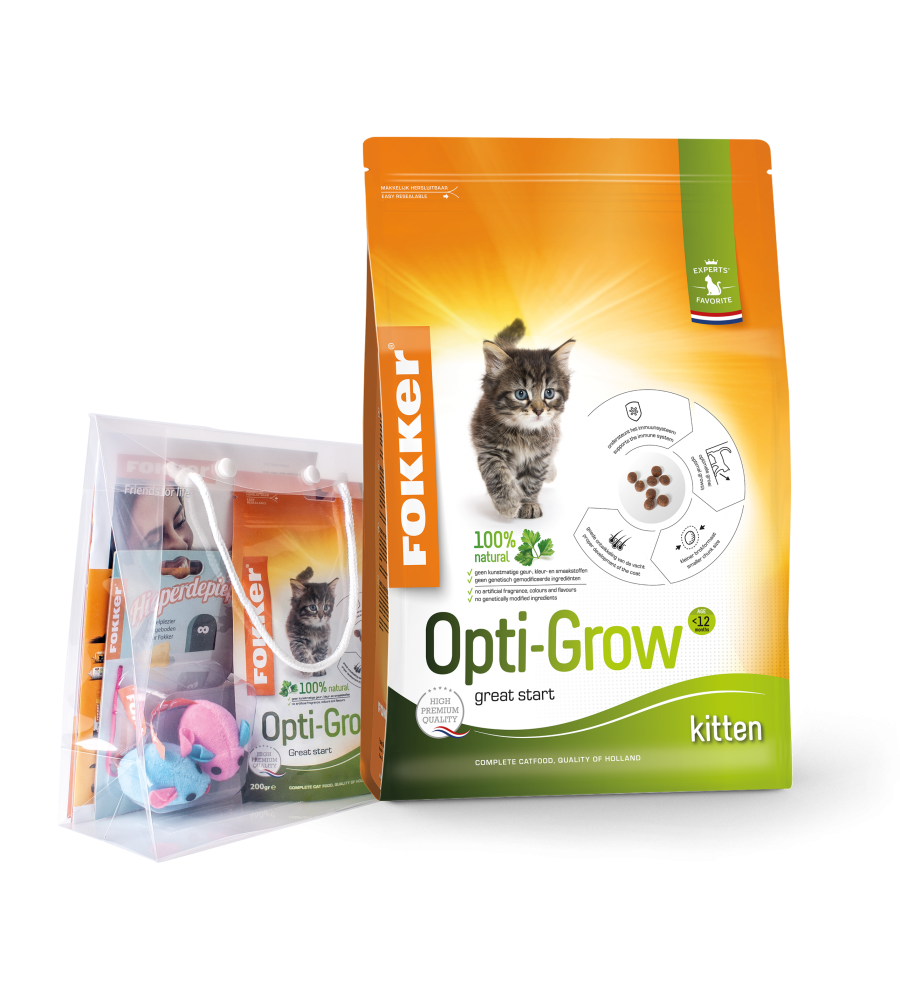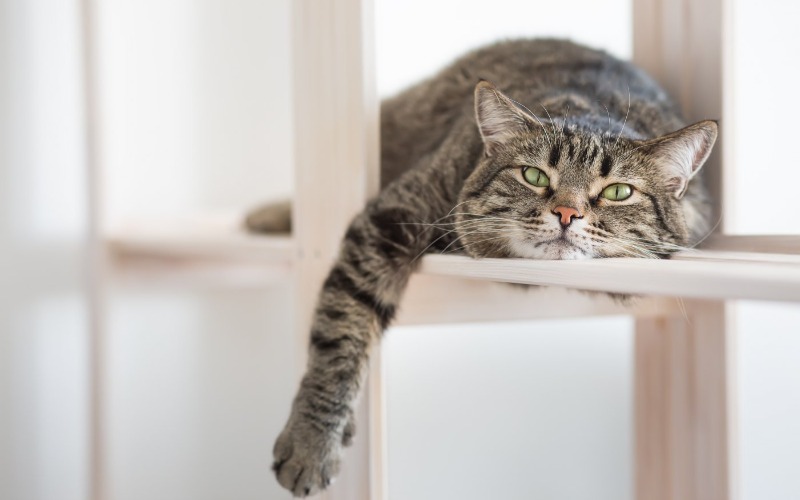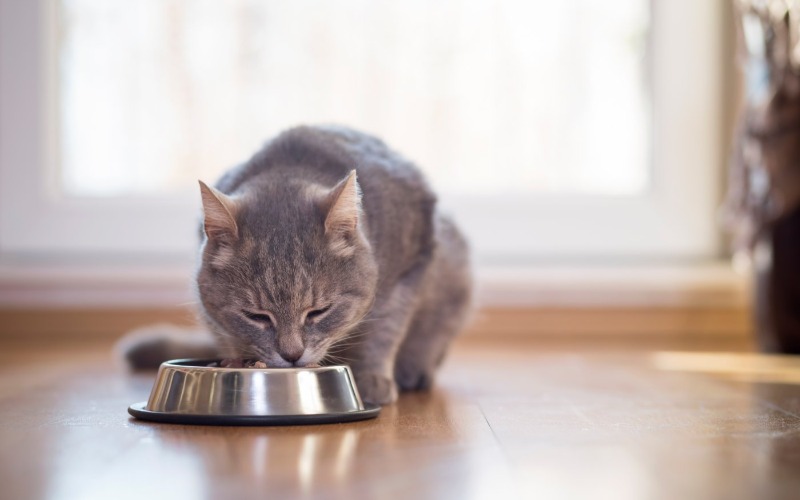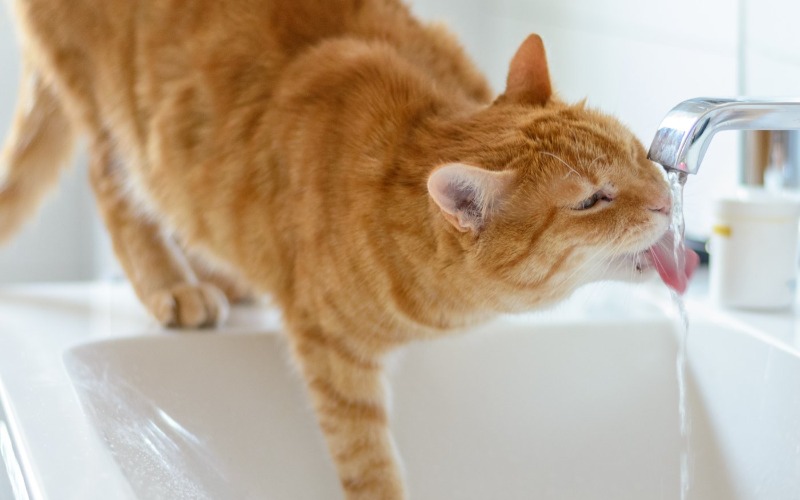In the first weeks of your kittens' lives, it's like watching them grow every day. Believe us when we say that not only does it seem so, but it actually is. Especially in the first four months, the small fluff balls quickly grow into real mini tigers. But how fast should a kitten grow? And what is the ideal weight when your cat reaches adulthood?
You can read more about it in this blog.
On average, a kitten weighs about 100 grams at birth.
Indeed, that is just as much (or little) as the ounce of meat at the butcher or the amount of chunks she can eat in 2 to 3 days as an adult. In the first 4 weeks, a kitten only drinks mother's milk. As soon as the first baby teeth come through, you can switch to solid food for kittens.
Up to 4 months a kitten gains weight rapidly. About 100 grams per week. A 10-week kitten weighs on average about 1100 grams, a 20-week kitten about 2200 grams. After 20 weeks, the growth rate slows down considerably, although kittens continue to grow until 1 year of age. After that, most cats are fully grown in length. The weight still increases, because of the strengthening of bones and muscles.
Adult cats weigh on average between 3.6 and 4.5 pounds.
Females are usually a bit lighter, males a bit heavier. Of course, this weight only applies to the house-garden-and-kitchen cat. For example, the Siamese is a small breed, with the average adult cat weighing about 3 kilos. A Maine Coon, on the other hand, will touch at least 5 to 7 kilos on the scale. In addition, the differences between cats are large. For example, a 2.5 kg cat can be just as healthy as a 8 kg male. Most importantly, the weight should suit your cat's physique.
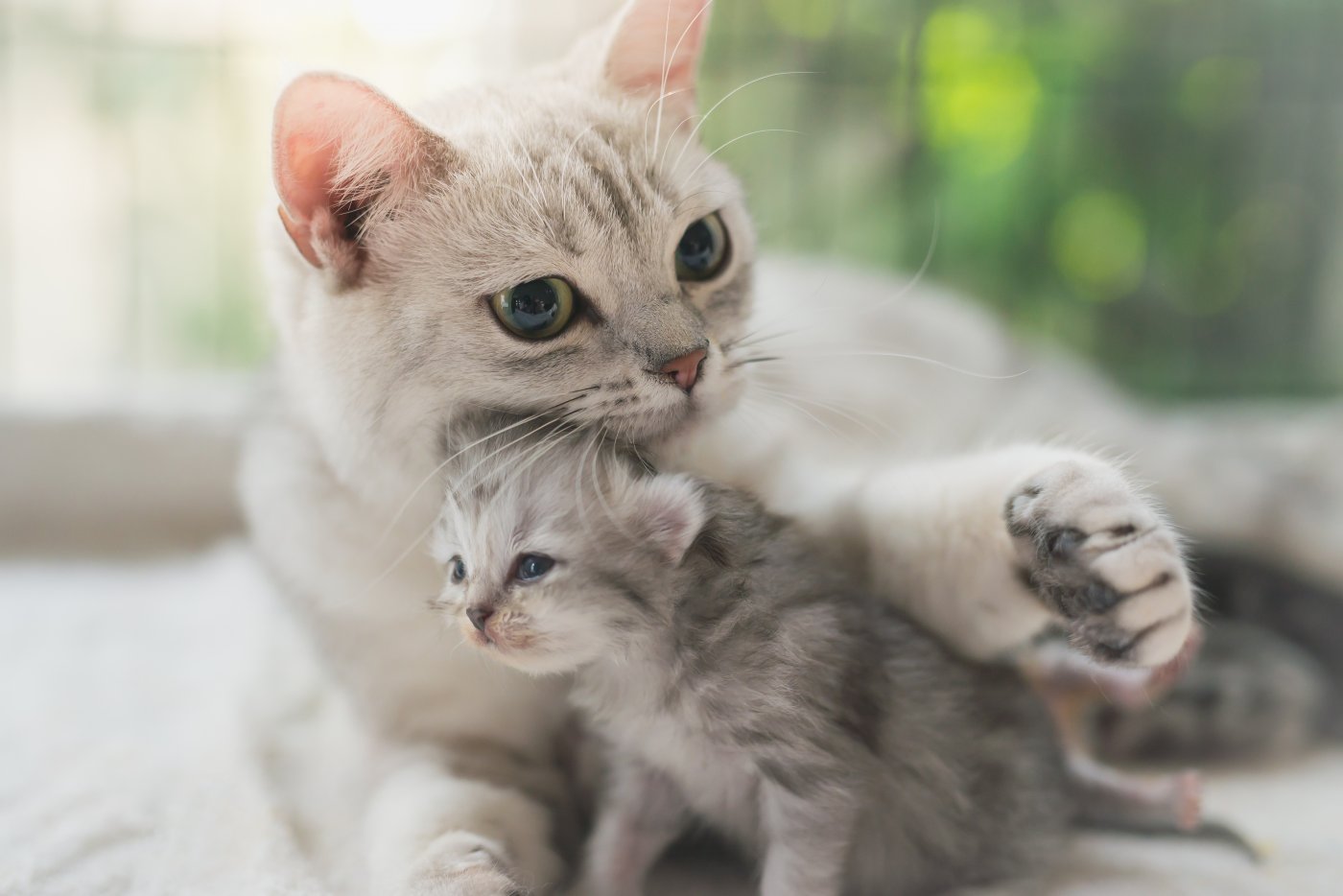
This is how you check your cat's weight.
You can check whether your cat has a healthy weight on the basis of the so-called 'body condition score'. You assess the weight based on a few appearance characteristics. With a cat at ideal weight, these are the following factors:
- 1. The ribs are not visible, but you can easily feel them
- 2. Seen from above, your cat has a definite waist
- 3. There is little belly fat or a minimal belly fold
Can't feel your cat's ribs or can't see the waist? Then your cat is probably overweight. Consult your vet to find out if your cat is underweight or overweight.
Neutering or spaying can change your cat.
After the castration of your male or sterilization of your cat, the hormone balance in the body changes. For most cats, this means that they gain weight faster. In other words, they need fewer nutrients. On the other hand, the appetite often increases. Chances are your sweet four-legged friend will be stroking your legs all day long or staring at you with pleading eyes, with the sole purpose of getting you to fill the food bowl again. As hard as it is… don't give in to this. Every day 10 grams of chunks too much, equals about 20% too much food. Before you know it, your ever-so-active kitten will turn into a copy of Garfield.
Just like with humans, food and exercise affect your cat's weight.
Cats that don't get more food than they need and that play outside every day, keep their weight. Do you want to make your cat lose weight? In this blog you can read about the common causes of obesity and how you can help your cat achieve the ideal weight.
In addition, you will find different types of kibble in the Fokker range that help you keep your cat at a healthy weight. For kittens we have the Opti-Grow. It supports growth and the immune system. For neutered and sterilized cats, there is the Steri-Fit, which helps prevent obesity and supports the urinary tract.
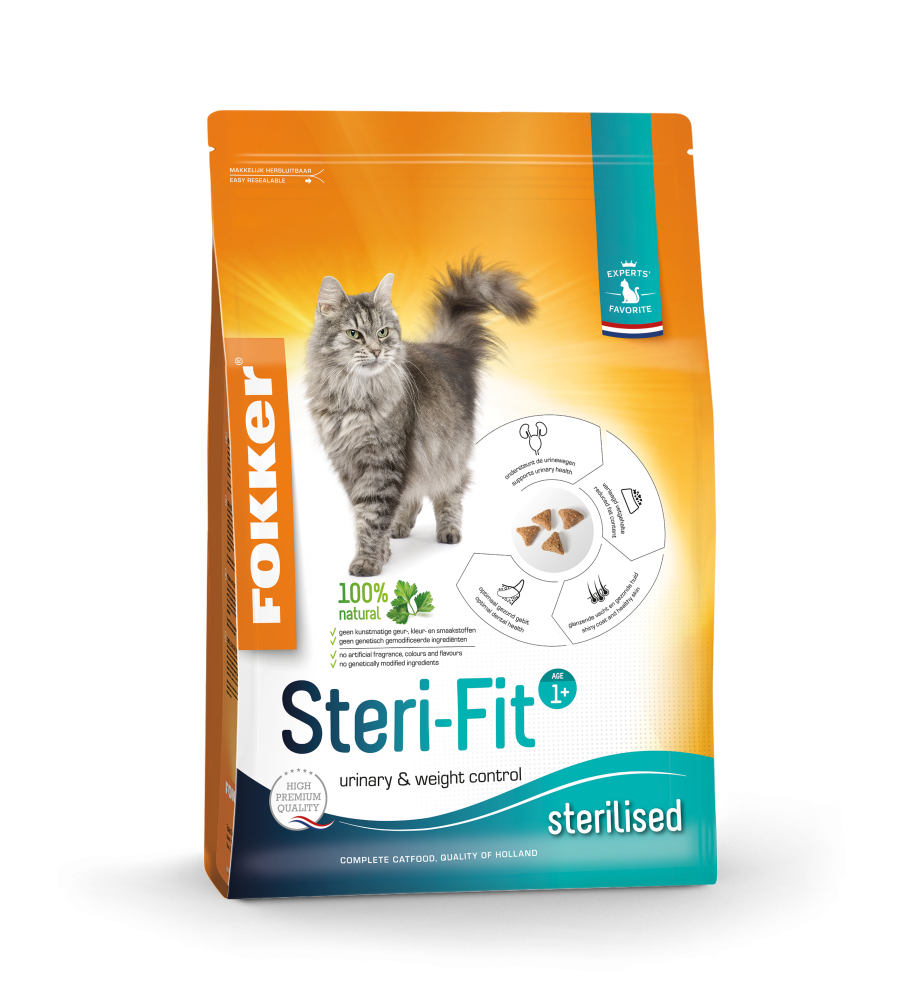
Complete premium food for adult cats with a tendency to be overweight or sterilized.
See product
 Language
Language  Login
Login